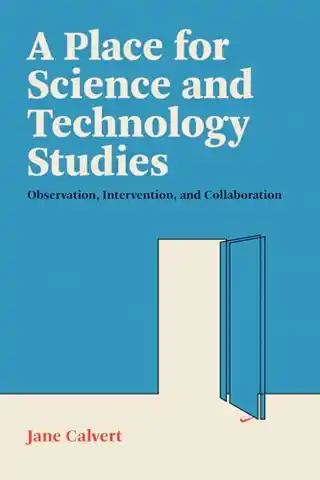This open-access book analyses how stakeholder relationships impact the sustainability of health aid. It does this by providing an overarching analytical framework, which allows for a systematic analysis of sustainability, relationships, and a possible causal link between these phenomena. The book goes beyond universal paradigms and detailed single-case studies by offering a thorough analysis of development projects to identify the factors that are also applicable to similar initiatives in comparable contexts.
Empirically, it focuses on two health initiatives, both implemented in the Kyrgyz Republic, a country pursuing a sector-wide approach to health aid. Unique primary material provides insights into a geographic region that is mostly neglected, and will be of interest to students and researchers of social policy, development studies, international health and those focusing on the post-Soviet region and Central Asia.
Conditions of Use
![]() This book is licensed under a Creative Commons License (CC BY). You can download the ebook Stakeholder Relationships And Sustainability for free.
This book is licensed under a Creative Commons License (CC BY). You can download the ebook Stakeholder Relationships And Sustainability for free.
- Title
- Stakeholder Relationships And Sustainability
- Subtitle
- The Case Of Health Aid To The Kyrgyz Republic
- Publisher
- Palgrave Macmillan
- Author(s)
- Gulnaz Isabekova
- Published
- 2023-10-20
- Edition
- 1
- Format
- eBook (pdf, epub, mobi)
- Pages
- 406
- Language
- English
- ISBN-10
- 3031319923
- ISBN-13
- 9783031319907
- License
- CC BY
- Book Homepage
- Free eBook, Errata, Code, Solutions, etc.
Preface Acknowledgments Praise for Stakeholder Relationships and Sustainability Contents Abbreviations List of Diagrams List of Tables 1: Introduction 1.1 Sustainability and Relationships in Aid: Problems and Approaches 1.2 Research Aims of This Book 1.3 Case Selection 1.4 Contextual Information on Kyrgyzstan 1.5 Data Collection 1.6 Book Structure References 2: Theorizing Power, Agents, Structures, and Aid Relationships 2.1 Conceptualization of Power 2.2 Conceptualizing Agents and Structures 2.3 Project Life Cycle 2.4 Uniting Theory and Empirical Findings References 3: Sustainability of Health Assistance 3.1 Operationalizing Sustainability 3.2 Conceptual Definition 3.3 Factors Influencing the Sustainability of Health Care Interventions 3.4 Summary References 4: The Role of Structural Factors in Selected Health Programs 4.1 Aid Predictability 4.2 Aid Flexibility 4.3 Capacity 4.4 Aid Dependency 4.5 Summary References 5: The “Community Action for Health”: The Project Life Cycle 5.1 Initiation 5.2 Design 5.3 Project Implementation 5.4 Project Evaluation References 6: Sustainability of the “Community Action for Health” Project 6.1 Project Description 6.2 Continuity of Project Activities 6.3 Maintaining Benefits 6.4 Community Capacity-Building 6.5 Summary References 7: Aid Relationships and Power Dynamics in the “Community Action for Health” Project 7.1 Donor–CSOs: The “Empowerment” Approach 7.2 Recipient State–CSOs: The “Utilitarian” Approach 7.3 Donor–Donor: Unequal Cooperation 7.4 Donor–Recipient State: (Contingent) Equal Cooperation References 8: The Global Fund Grants: Project Life Cycle 8.1 Initiation 8.2 Design 8.3 Implementation 8.4 Monitoring References 9: Sustainability of Global Fund Grants 9.1 Description of Grants 9.2 Continuity of Project Activities 9.3 Maintaining Benefits 9.3.1 Community Capacity Building 9.4 Summary References 10: Aid Relationships and Power Dynamics in the Global Fund Grants 10.1 Donor–CSOs: “Utilitarian” Approach 10.2 Recipient State–CSOs: “Utilitarian” Approach 10.3 Donor–Donor: Coordination 10.4 Donor–Recipient State: Unequal Cooperation References 11: “Missing Link” 11.1 The “Community Action for Health” Project 11.1.1 Impact of an “Empowerment” Approach on Sustainability 11.1.2 Impact of a “Utilitarian” Approach on Sustainability 11.1.3 Impact of (Un)equal Donor-Driven Cooperation on Sustainability 11.2 The Global Fund Grant to Kyrgyzstan 11.2.1 Impact of a “Utilitarian” Approach on Sustainability 11.2.2 Impact of Unequal Donor-Driven Cooperation on Sustainability 11.2.3 Impact of Coordination on Sustainability 11.3 Cross-Case Causal Inferences 11.4 Methodological Limitations References 12: Conclusion and General Implications of This Study 12.1 Aid Relationships 12.2 Sustainability of the Selected Health Projects 12.3 The “Missing Link” between Aid Relationships and Sustainability 12.4 Further Findings and Limitations of This Research References Appendix The Global Fund Grants to Kyrgyzstan (2004–Present)1 Index








